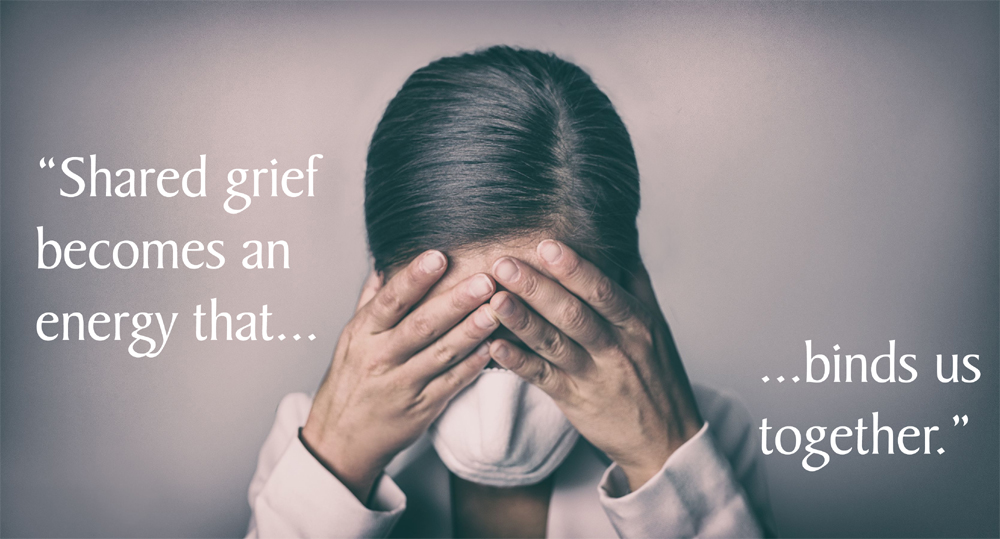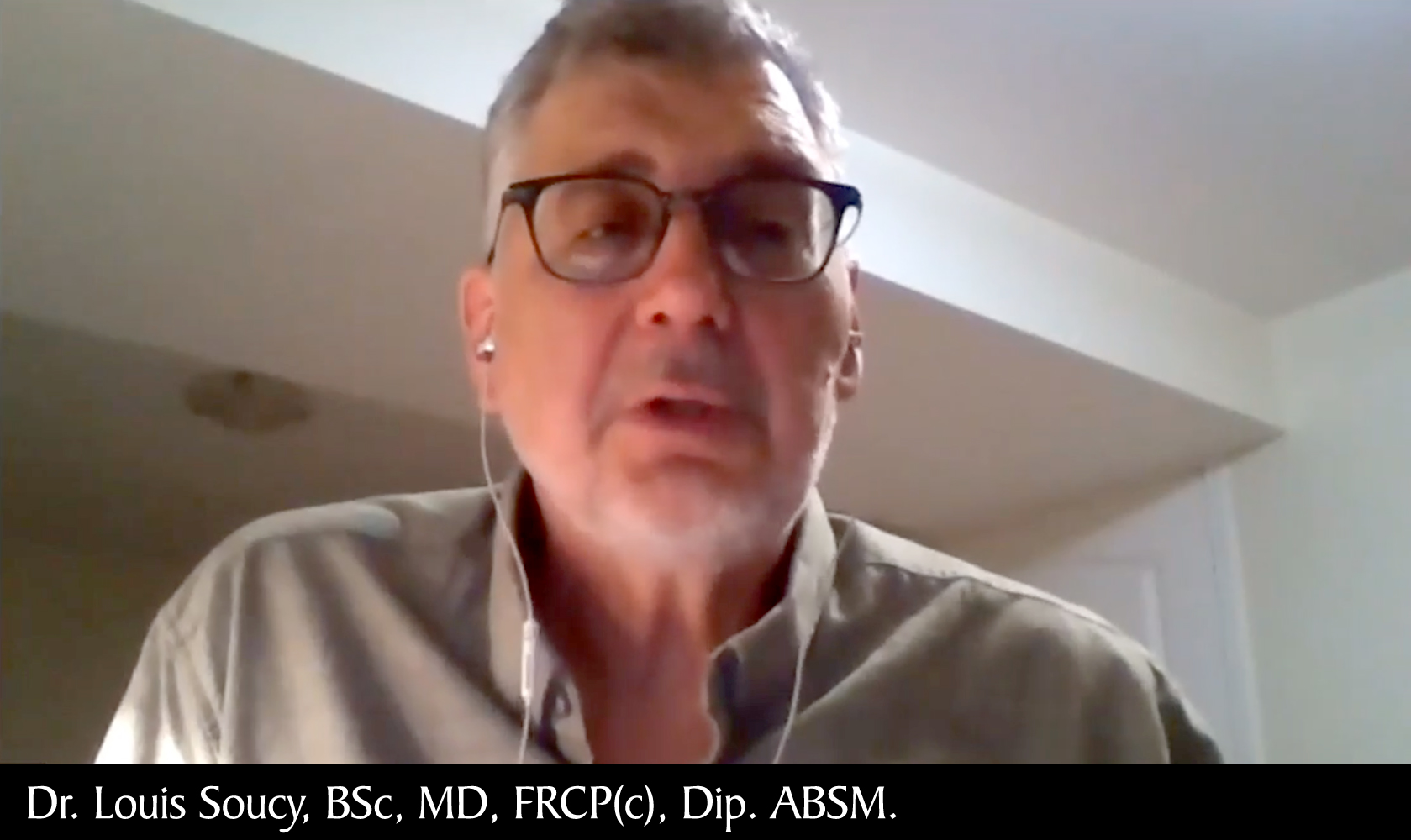|
 July
20, 2021
July
20, 2021
Strengthening Mind & Spirit in Pandemic Times
As summer of
2021 approached, parts of the world – like ours – felt hope and relief.
Meanwhile, billions remained on high pandemic alert. Covid-19 deaths
approached four million. Poorer nations had enormously strained medical
systems. Only tiny percentages were vaccinated. Even in Canada, the
effects of the pandemic linger: gaps in our social supports have been
exposed; trust in authority has eroded; economic and ethnic divides
have been revealed and have worsened; conspiracy theories abound;
social isolation and loneliness persist. There is much more to a global
pandemic than the obvious casualties.

Anxiety, depression, xenophobia, boredom, helplessness, novel fears,
and deepening addictions are the collateral damage of Covid-19.
Organizers of the Ottawa Bahá’í community’s Big Ideas series invited a
local psychiatrist, Louis Soucy, to share insights into the
psychological and spiritual trauma that afflicts humanity, and what to
do about it. Dr. Soucy, a veteran of various frontlines of psychiatry,
has been applying Bahá’í knowledge and practice to his professional
development since his teens. He immediately zeroed in on stress.
Stress, whether acute or chronic, is “a change that causes physical,
emotional, psychological and spiritual strain”. Some results are
measurable (elevated heart rate), but during a pandemic the intangible
symptoms also multiplied. Isolation, a loss of mental equilibrium, even
our values, the sense of purpose held by a person or even an entire
community, are affected. Humans acquire knowledge by recognizing
patterns and connections, but this process is notoriously derailed by
our cognitive biases, such as the famed “Dunning-Kruger” effect: the
less people know about a subject, the more confident they tend to be in
their judgement. “Every complicated problem has a simple solution,”
Soucy remarked, “it’s usally wrong!”
Bahá’u’lláh, the prophet-founder of the Bahá’í Faith, ranked the
greatest gifts of the Creator to humanity: “First and
foremost among these favours…is the gift of understanding…. This gift
giveth man the power to discern the truth in all things, leadeth him to
that which is right, and helpeth him to discover the secrets of
creation.” Align this with the cardinal Bahá’í teaching of
the essential harmony between science and true religion, and it becomes
clear that, as Christ said, “Ye shall know the truth, and the truth
shall make you free.”

Knowing that Covid-19’s effects, beyond the still-climbing mortality
figures, have heavily damaged economic, educational and social
development, what are we to do? Dr. Soucy began with the basics –
sleep, diet, physical activity, and avoiding the addictive deficits of
alcohol, smoking, and our various screen obsessions – then considered
shared spiritual practices. “Belonging to a religious community has
been shown to be protective” against pandemic and other forms of
stress. Specifically, the Bahá’í teachings call us to regular prayer
and meditation, but also to arise in service to others, not only for
their sake but, as science is confirming, for our own well-being.
“Don’t forget hope. Hope is more than just wishing
things were better,” Dr. Soucy emphasized. Psychologist Rick Snyder
offered a model of hope: goals, a direction; agency, the conviction
that we can do something; and finally, motivation. “Existential hope”,
long a factor of religious faith, urges us to recognize “that we are
not in control of what happens to us, but we can choose how to
respond”. For example, the poet Rumi recommended welcoming a stranger
into one’s life, since each has been sent as a guide. Buddhism warned
us about “two arrows” – the first is an event that may pierce us, but
it is the second arrow of worry, guilt, or revenge that truly does the
damage. Dr. Soucy’s conclusion? “Tests provide us with an opportunity,
even a necessity, to grow.”
“…from time immemorial even unto eternity the Almighty
hath tried, and will continue to try, His servants, so that light may
be distinguished from darkness, truth from falsehood…happiness from
misery, and roses from thorns…” Bahá’u’lláh
Bahá’u’lláh’s son ‘Abdu’l-Bahá wrote: “These tests…do but
cleanse the spotting of self from off the mirror of the heart, till the
Sun of Truth can cast its rays thereon…” Later, in 1941, his
great-grandson Shoghi Effendi, the Guardian of the faith, put it this
way: “Failures, tests, and trials, if we use them correctly, can become
the means of purifying our spirit, strengthening our characters, and
enable us to rise to greater heights of service.”
This is also true of the collective. Major redistributions of societal
wealth have come via war, plague and revolutions. “Shared grief becomes
an energy that binds us together,” Soucy explained, and a common enemy
(this virus) unites us. Human beings and communities commonly show
their best qualities when subjected to great ordeals. Stress is normal,
even beneficial. The darkest difficulties, if viewed in the correct
spirit, give us an opportunity to shine.
Louis Soucy offered a banquet of thoughts for the Big Ideas May
presentation, which this summary barely samples. He closed with a
prayer for all those around the world who continue to suffer during
this testing time for humanity.
|
|


